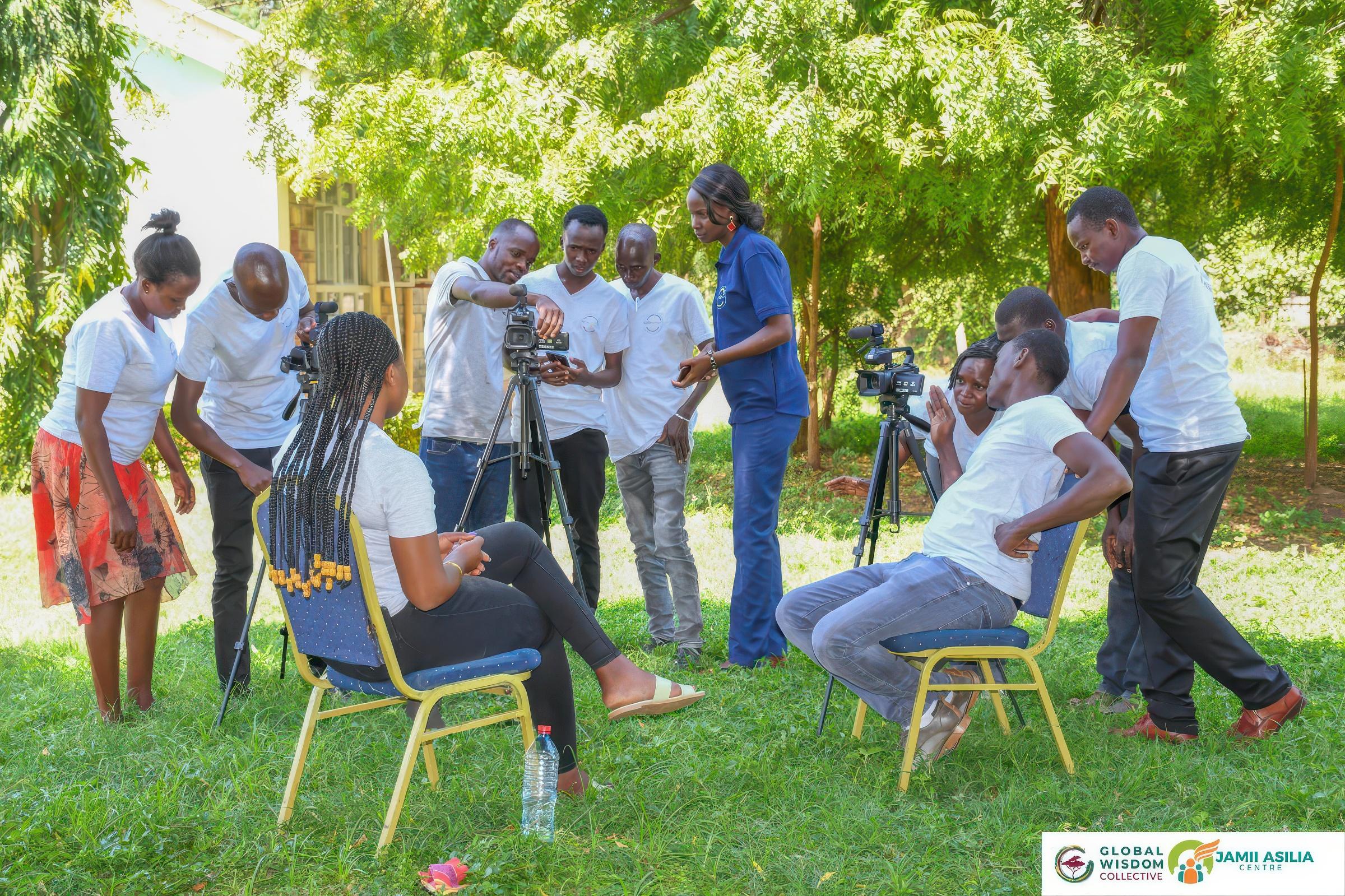Safeguarding Indigenous Knowledge: The Challenges Faced By Indigenous Scientists

Table of Contents
The Threat of Biopiracy and Intellectual Property Rights
Biopiracy, the unauthorized appropriation of Indigenous knowledge and genetic resources, poses a severe threat to Indigenous communities. Corporations and researchers often exploit traditional knowledge related to medicinal plants, agricultural practices, and other resources without proper consent or compensation, leading to economic and cultural loss. The challenges of obtaining and enforcing intellectual property rights (IPR) for traditional knowledge are immense.
- Lack of legal recognition of Indigenous rights over their knowledge: Existing legal frameworks often fail to adequately recognize Indigenous rights to their traditional knowledge, leaving them vulnerable to exploitation.
- Difficulty in proving ownership and origin of traditional knowledge: The oral tradition of knowledge transmission makes it challenging to establish clear ownership and prove the origin of specific knowledge claims.
- Exploitation by corporations and researchers without proper consent or compensation: This often leads to significant economic losses for Indigenous communities who are deprived of the benefits derived from their knowledge.
- Need for culturally appropriate legal frameworks: Developing legal frameworks that respect Indigenous customary laws and knowledge systems is crucial for effective protection. These frameworks should prioritize free, prior, and informed consent (FPIC) and ensure fair and equitable benefit-sharing.
Limited Access to Funding and Resources
Indigenous scientists often face significant barriers in accessing funding and resources necessary to conduct research and protect their knowledge. This underfunding reflects systemic biases within research institutions and grant allocation processes.
- Systemic biases in grant allocation processes: Funding opportunities frequently favor Western scientific approaches, marginalizing Indigenous research methodologies and priorities.
- Lack of mentorship and networking opportunities for Indigenous researchers: Limited access to mentors and professional networks hinders career development and research success.
- Need for targeted funding initiatives supporting Indigenous-led research: Dedicated funding programs are crucial for supporting Indigenous researchers and promoting Indigenous-led research projects.
- Importance of investing in Indigenous research infrastructure: Improved access to research facilities, technology, and data is essential for empowering Indigenous scientists and enabling high-quality research.
Preserving and Passing Down Traditional Knowledge
Documenting and archiving Indigenous knowledge is a crucial step in its preservation, but it's a complex process fraught with challenges. Furthermore, ensuring the intergenerational transfer of this knowledge is vital for its long-term survival.
- Language loss and the impact on knowledge transmission: The decline of Indigenous languages significantly impacts the transmission of traditional knowledge, as much knowledge is embedded within these languages.
- Challenges in adapting traditional knowledge to new technologies and contexts: Integrating traditional knowledge with modern technologies requires careful consideration and collaboration to avoid misinterpretation or cultural dilution.
- Need for collaborative projects involving Indigenous communities and researchers: Successful knowledge preservation requires collaborative projects that respect Indigenous knowledge systems and ensure community ownership.
- Importance of community-based knowledge management systems: Empowering Indigenous communities to manage and protect their own knowledge through community-based systems is vital for long-term sustainability.
Combating Misrepresentation and Misappropriation of Indigenous Knowledge
Ethical considerations are paramount when using Indigenous knowledge in research and development. Misrepresentation and misappropriation of Indigenous knowledge are serious ethical violations that undermine Indigenous rights and cultural integrity.
- Lack of informed consent and community participation in research projects: Research involving Indigenous knowledge must always prioritize FPIC and active community participation in all stages of the research process.
- Need for ethical guidelines and protocols for research involving Indigenous knowledge: Clear ethical guidelines and protocols are necessary to ensure responsible and respectful engagement with Indigenous knowledge.
- Importance of respecting Indigenous worldviews and epistemologies: Research must acknowledge and value Indigenous worldviews and ways of knowing, recognizing their validity and importance.
- Strategies for ensuring accurate representation and attribution of Indigenous knowledge: Researchers must commit to accurately representing and attributing Indigenous knowledge, giving due credit to its source and avoiding any misrepresentation.
Conclusion
Safeguarding Indigenous knowledge is not merely an academic pursuit; it is a critical endeavor for protecting cultural heritage, promoting environmental sustainability, and ensuring social justice. Indigenous scientists play a vital role in this process, but they require substantial support. Addressing the challenges they face—from biopiracy and funding limitations to knowledge preservation and ethical concerns—requires collaborative efforts involving governments, research institutions, and international organizations. By actively investing in and supporting Indigenous-led research, we can ensure the protection and responsible utilization of invaluable Indigenous knowledge for the benefit of all. Let’s commit to fostering a future where Indigenous knowledge is respected, protected, and utilized ethically, for the advancement of both Indigenous communities and global well-being. Let's actively participate in safeguarding Indigenous knowledge.

Featured Posts
-
 Edan Alexanders Father Pleads For Us Intervention Believes Son Still Alive
May 13, 2025
Edan Alexanders Father Pleads For Us Intervention Believes Son Still Alive
May 13, 2025 -
 Erneuter Schuleinsatz In Braunschweig Gebaeude Geraeumt Keine Kinder Gefaehrdet
May 13, 2025
Erneuter Schuleinsatz In Braunschweig Gebaeude Geraeumt Keine Kinder Gefaehrdet
May 13, 2025 -
 Salman Khans Box Office Performance A 25 Year Low
May 13, 2025
Salman Khans Box Office Performance A 25 Year Low
May 13, 2025 -
 Tory Lanez Allegedly Tampered With Megan Thee Stallions Deposition
May 13, 2025
Tory Lanez Allegedly Tampered With Megan Thee Stallions Deposition
May 13, 2025 -
 Persipura Butuh Kamu Kakanwil Papua Ajak Masyarakat Dukung Tim Kebanggaan
May 13, 2025
Persipura Butuh Kamu Kakanwil Papua Ajak Masyarakat Dukung Tim Kebanggaan
May 13, 2025
